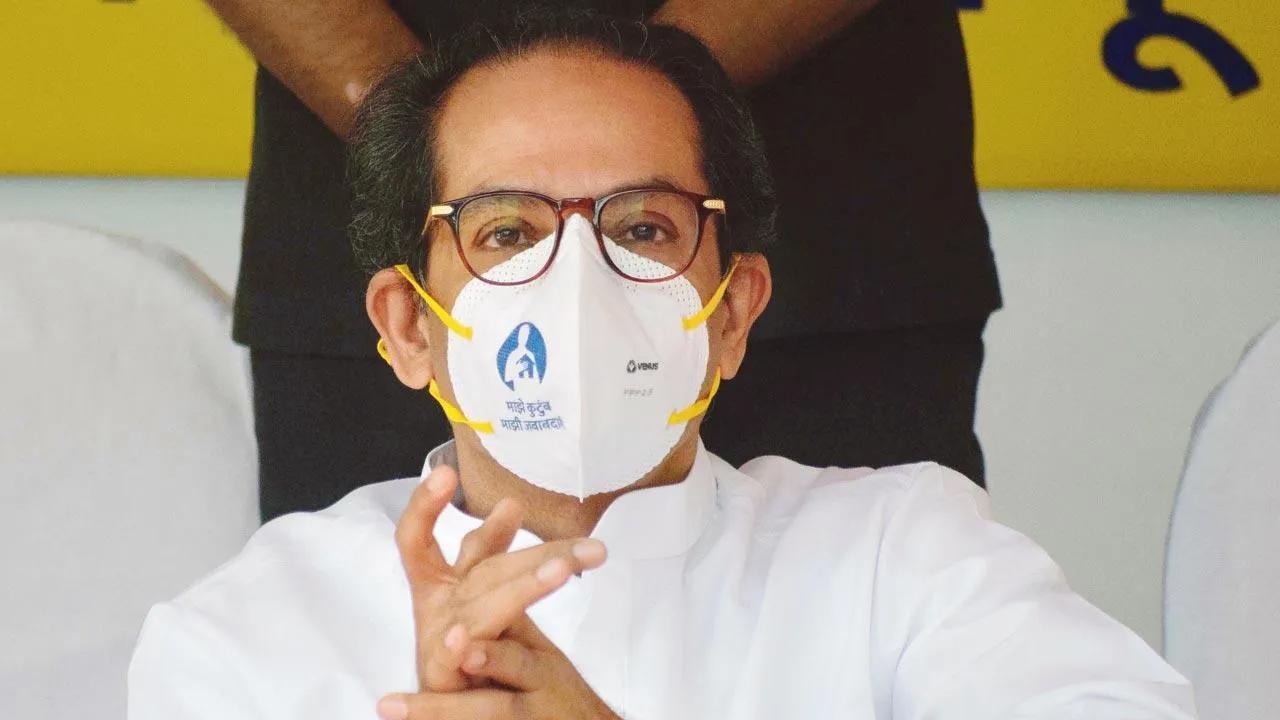Maharashtra chief minister asks administrators to prepare for shutdown and impose stricter restrictions in wake of rising COVID-19 cases in the state.

Chief Minister Uddhav Thackeray. File pic
A second lockdown is expected to be imposed from April 2 or April 3 in Maharashtra for a limited period, sources in the state government said. According to the sources, the administration, after receiving orders on Sunday from CM Uddhav Thackeray, has started preparing for the restrictions.
ADVERTISEMENT
The shutdown is expected to be different from last year’s as it would not hamper economic activities like before, but essentially focus on preventing crowding for arresting the increasing transmission of the novel coronavirus, said sources.
Thackeray's directives came at a review meeting on Sunday in which the Covid Task Force projected more deaths if restrictions like lockdown were not imposed. "Since the Covid protocol and guidelines are violated, the administration should prepare for a lockdown and make standard operating procedures available," the chief minister was quoted as saying in an official statement.
The release added that the CM was told that the increasing active cases were creating a shortfall of beds and other healthcare facilities like ventilators and oxygen.
Sources said the places where people gather in large numbers would be shut. Multiplexes, cinema halls, beaches, gardens, auditoriums and malls which are now allowed to operate between 7 am and 8 pm will be closed 24x7. Standalone shops will be given time slots to operate. The large markets may operate under strict guidelines.
The suburban/long distance trains and public transport buses will be given strict guidelines to follow. Testing at railways stations and airports will be intensified. Manufacturing sector will be allowed to operate at full-scale, but not without adhering to Covid-19 protocols.
Considering the situation that may arise, the CM asked the administration to ensure adequate availability of medicine, healthcare, essential services and civil supplies.
It was decided that patients should be kept in institutional quarantine/isolation instead of home quarantine. Oxygen production would be increased and supply chains taken to the places where it is needed; more ventilators to be bought and the number of intensive care units increased. Private doctors will be roped in to enhance trained frontline workforce. The order stated that employees with comorbidities will be encouraged to work from home.
Bars and eating establishments will most likely be allowed take away and home delivery options instead of dine-in services.
 Subscribe today by clicking the link and stay updated with the latest news!" Click here!
Subscribe today by clicking the link and stay updated with the latest news!" Click here!






